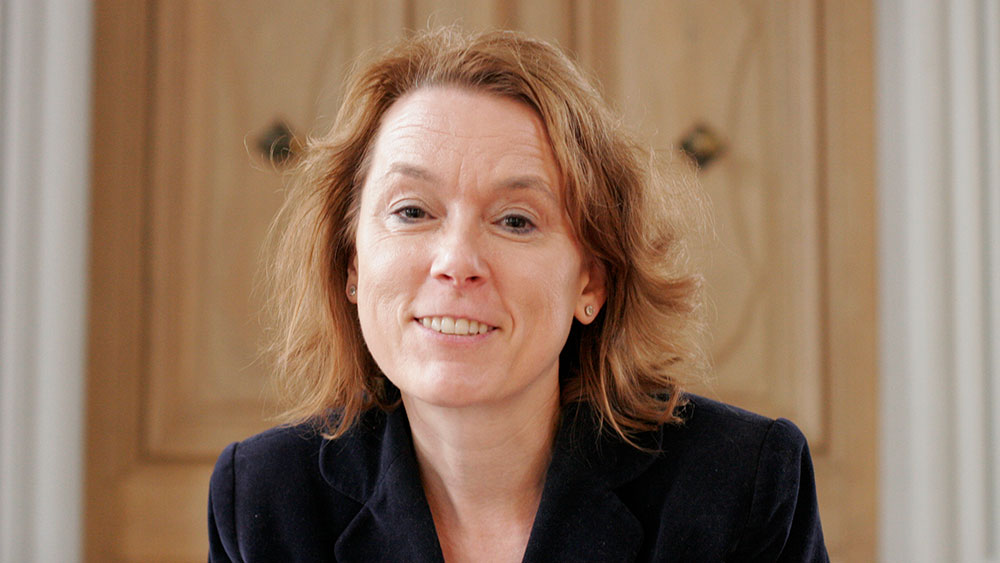Human Rights for the Global Economy
Christine Kaufmann, what do you understand by responsible business conduct?
Christine Kaufmann: Companies should be clear about how they can positively contribute to responsible and sustainable development. They should eliminate or at least mitigate the negative consequences of their business activities. Finally, responsible business should be a normal and integral part of their operational processes.
Specifically: If UZH purchases chocolate to give as a gift, the purchasing team should first check where the chocolate is produced. They should ask the suppliers, for example, where the cocoa comes from and what they are doing to ensure that the plantations are not using child labor. Such questions should be a normal part of all purchasing processes. The Organisation for Economic Cooperation and Development (OECD) has published due diligence guidance on how to carry out these checks.
What motivated you to apply for the position as chair of the OECD working party?
The OECD is committed to creating better economic and social living conditions around the world. That includes fair working conditions, human rights and environmental protection. In the OECD, the member states work together with representatives from industry, trade unions and civil society to achieve these goals.
Throughout my career I have worked to implement human rights in a variety of contexts, and I have learnt one thing for certain along the way: It’s not possible without the cooperation of businesses. What motivated me to apply was the mandate that the OECD has to shape globalization in such a way that as many people as possible benefit from it. I am convinced that thanks to my research work at UZH’s Centre for Human Rights Studies together with my experience in this field, not least in working with various stakeholders, I can make a significant contribution in this role.
Can you give a specific example of the OECD’s work?
By all means. In 2015, a trade union (BWI) lodged a complaint with the National Contact Point of Switzerland against FIFA. The complaint was that FIFA was not doing enough to tackle the poor working conditions of migrant workers on stadium construction sites in Qatar. As part of the proceedings opened by the Swiss National Contact Point, representatives of FIFA met representatives of the trade union and agreed on a range of specific measures to be implemented in Qatar. That doesn’t mean that things are now perfect, but it did lead to concrete improvements for the workers on the ground.
What is a contact point?
The National Contact Points for the OECD Guidelines for Multinational Enterprises are still relatively unknown, but they provide important mediation and arbitration functions. The contact points deal with complaints against companies that are suspected of being in contravention of the OECD guidelines. In Switzerland, the National Contact Point is under the responsibility of the State Secretariat for Economic Affairs (SECO). It is often trade unions that report such cases, but in fact any individual who has the impression that a company is not adhering to the guidelines can report to the contact point. So, for example, you could contact the Swiss National Contact Point if you believed that child labor was involved in the production of certain products. The contact point would then offer you and the company concerned the opportunity to discuss, via mediation, how the situation could be improved. It’s a very straightforward process that aims to find solutions rather than apportion blame.
You already have experience relating to the Swiss National Contact Point, is that right?
Yes, indeed. In 2013, I took over the co-presidency of the advisory board of the National Contact Point for the OECD Guidelines.
What will be your first tasks in your new role?
The priority is to implement the current guidelines for responsible business conduct worldwide. For the member states, it is important that we provide concrete tools to support companies in taking responsibility for their value chains. We therefore provide, for example, sector-specific practical guidance.

Which sectors are particularly affected?
It’s difficult to say across the board – often it comes down to individual cases. There are industries in which the production itself is dangerous. Minerals, diamonds and gold are often mined in conflict areas with weak legal regulations and no labor protection.
In other sectors the supply chains are very complex, meaning it is difficult to even find out who is involved in the production. Often people working in the informal economy are involved, such as family members and children working without employment contracts or protection. But great efforts have been made to improve the situation. In the textile sector, which is particularly affected, awareness of the problem was raised by the collapse of the Rana Plaza factory in Bangladesh, leading to an urgently needed change in mindset.
What is the global outlook for responsible business conduct?
A lot has changed in the last 10 years. Companies are traditionally very risk-aware. Previously, the primary risks that they took into account were those affecting the company and its owners, shareholders or investors. These aspects are still important, but companies are now becoming more aware of risks for people and the environment. The adoption of responsible business conduct varies greatly from country to country and from sector to sector, however.
You are the first Swiss person to lead the OECD Working Party on Responsible Business Conduct. Does being Swiss give you a particular perspective?
Switzerland is a committed member of the OECD and the government actively supported my application. However, I will not be representing Switzerland in my new role, but will carry out my duties independently and will withdraw in cases that involve Swiss companies.
